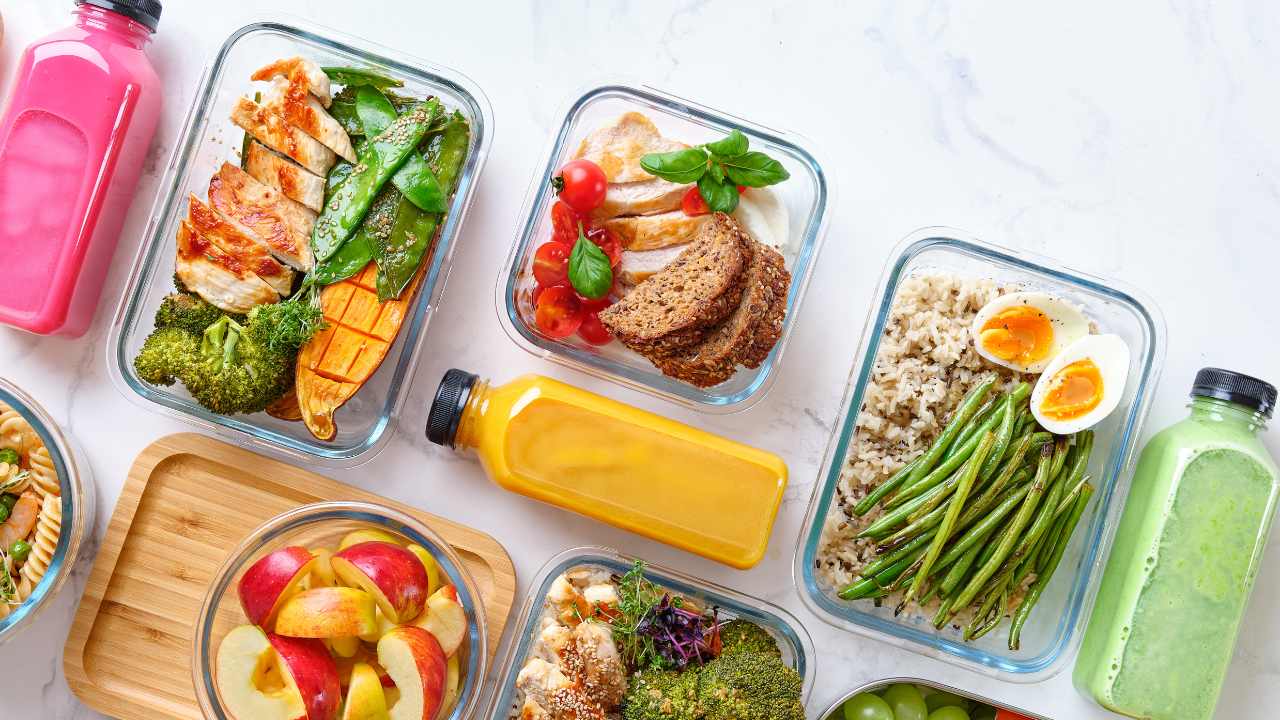In today’s fast-paced world, eating healthy often feels like a challenge. With so many processed and fast-food options, making the right dietary choices can be overwhelming. However, adopting a healthier lifestyle doesn’t mean sacrificing flavor or spending hours in the kitchen. In this comprehensive guide, we explore healthy food recipes that are not only delicious and easy to make but also support overall wellness.
From wholesome breakfast ideas to energizing lunch options and satisfying dinners, we’ve curated a selection of recipes that cater to all taste buds. Whether you’re a vegetarian, vegan, gluten-free eater, or just someone looking to eat clean, you’ll find something to enjoy.
Why Choose Healthy Food?
Before diving into the recipes, it’s important to understand why healthy eating matters. According to the World Health Organization (WHO), a balanced diet can:
Also Read
- Improve overall health
- Reduce the risk of chronic diseases
- Promote better mental health
- Support healthy growth and aging
Making simple changes in your daily meals can yield long-lasting health benefits.
Healthy Breakfast Recipes
Overnight Oats with Berries
Ingredients:
- 1/2 cup rolled oats
- 1 cup almond milk
- 1 tbsp chia seeds
- 1/2 cup mixed berries
- 1 tsp honey (optional)
Instructions: Mix all ingredients in a jar, refrigerate overnight, and enjoy a ready-to-eat, nutrient-packed breakfast.
Health Benefits: High in fiber, antioxidants, and omega-3 fatty acids.
Avocado Toast with Poached Egg
Ingredients:
- 1 slice whole-grain bread
- 1/2 ripe avocado
- 1 poached egg
- Salt, pepper, chili flakes
Instructions: Toast the bread, mash avocado on top, add the poached egg, and season to taste.
Health Benefits: Packed with healthy fats, protein, and complex carbs.
Healthy Lunch Recipes
Quinoa Salad with Chickpeas and Veggies
Ingredients:
- 1 cup cooked quinoa
- 1/2 cup canned chickpeas
- 1/4 cup chopped cucumber
- 1/4 cup cherry tomatoes
- 1 tbsp olive oil
- Lemon juice, salt, and pepper to taste
Instructions: Mix all ingredients and serve chilled.
Health Benefits: High in plant-based protein, fiber, and essential minerals.
Grilled Chicken and Veggie Bowl
Ingredients:
- 1 grilled chicken breast
- 1/2 cup cooked brown rice
- Steamed broccoli, carrots, and bell peppers
- 1 tbsp tahini or yogurt sauce
Instructions: Assemble the bowl and drizzle with your favorite healthy sauce.
Health Benefits: Rich in lean protein, vitamins, and complex carbohydrates.
Healthy Dinner Recipes
Baked Salmon with Sweet Potato
Ingredients:
- 1 salmon fillet
- 1 small sweet potato, sliced
- Olive oil, garlic, lemon, rosemary
Instructions: Bake salmon and sweet potato slices at 400°F for 20-25 minutes. Season to taste.
Health Benefits: Omega-3 rich meal that supports heart and brain health.
Lentil and Spinach Curry
Ingredients:
- 1 cup cooked lentils
- 1/2 cup chopped spinach
- 1 chopped onion and garlic
- Coconut milk and curry spices
Instructions: Sauté onion and garlic, add lentils, spinach, and spices. Simmer with coconut milk.
Health Benefits: High in iron, protein, and antioxidants.
Healthy Snacks and Smoothies
Greek Yogurt Parfait
Ingredients:
- 1/2 cup Greek yogurt
- 1/4 cup granola
- Fresh fruits (berries or banana)
Instructions: Layer ingredients in a glass and serve chilled.
Health Benefits: A protein-rich snack that supports digestion.
Green Detox Smoothie
Ingredients:
- 1 cup spinach
- 1/2 banana
- 1/2 cup pineapple
- 1 cup coconut water
Instructions: Blend until smooth and enjoy cold.
Health Benefits: Excellent for detoxifying and hydrating the body.
Special Diet-Friendly Recipes
Vegan Buddha Bowl
Ingredients:
- Roasted chickpeas
- Quinoa
- Avocado
- Kale
- Carrot ribbons
Instructions: Layer in a bowl and top with tahini dressing.
Health Benefits: Fully plant-based, rich in fiber and micronutrients.
Gluten-Free Zucchini Noodles
Ingredients:
- Spiralized zucchini
- Tomato basil sauce
- Parmesan (optional)
Instructions: Sauté noodles lightly and add sauce. Serve warm.
Health Benefits: Low-carb and gluten-free alternative to pasta.
Conclusion
Eating healthy doesn’t have to be boring or difficult. With these healthy food recipes, you can nourish your body, satisfy your cravings, and stay on track with your wellness goals. Start with one meal a day, explore different combinations, and most importantly, enjoy the journey to better health.
Frequently Asked Questions (FAQs)
Q1: Are these recipes suitable for weight loss? Yes, these recipes are nutrient-dense and low in empty calories, making them ideal for a weight loss-friendly diet.
Q2: Can I meal prep these recipes? Absolutely. Most of these dishes can be prepared in advance and stored for 3-5 days.
Q3: Are these meals kid-friendly? Yes! You can easily adjust the spices and flavors to suit children’s palates.
Stay Connected With Google News

A passionate food writer with a deep commitment to promoting healthy eating habits, I create engaging and informative content that helps readers make better food choices. With a focus on nutrition, wellness, and practical tips, I share easy-to-follow recipes, health-conscious meal plans, and expert insights to inspire a balanced lifestyle. My mission is to make healthy eating accessible and enjoyable for everyone.





